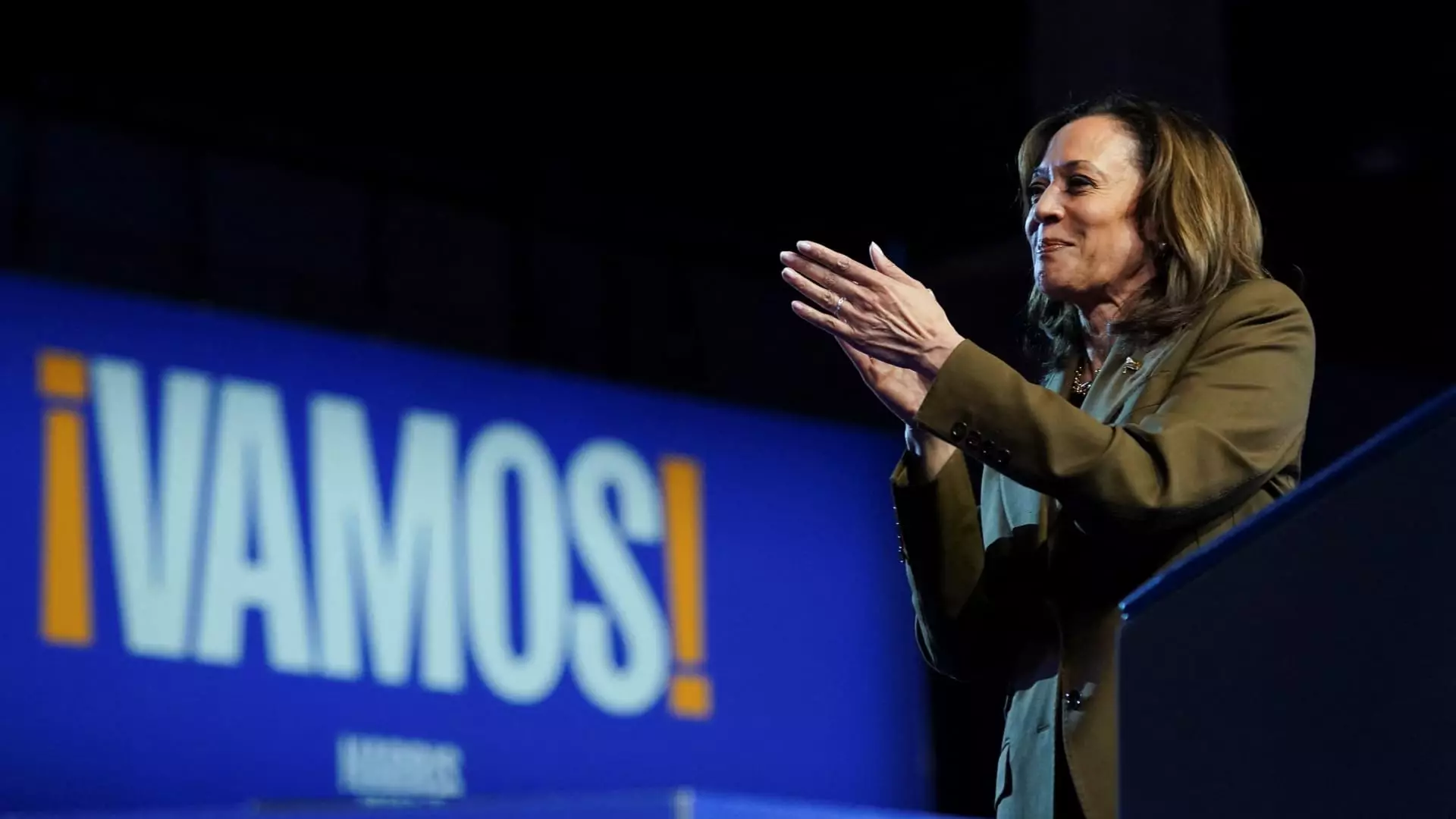In a crucial bid to solidify voter support, the campaign of Vice President Kamala Harris is gearing up for a series of outreach events targeting small businesses in key battleground states. This deliberate strategy reflects the critical importance of engaging with minority communities, particularly Black and Latino voters who played a pivotal role in the 2020 election. Despite Harris’s absence at these events, the initiative, dubbed “Small Business for Harris-Walz,” aims to leverage the efforts of local elected officials and community leaders to communicate her campaign’s message.
Understanding the Shift in Voter Dynamics
The upcoming small business tour provides a response to notable shifts in voter allegiance. Recent polling indicates a concerning trend of diminishing support for Democrats among Black and Latino populations. This voter segment, which previously proved decisive in the 2020 election, is now being courted aggressively by Republican nominee Donald Trump, who has made concerted efforts to resonate with these communities. Trump’s rally remarks ascribe a sense of assurance to Black and Hispanic voters, suggesting their fortunes would flourish under his leadership. Such remarks can be interpreted as an attempt to create a narrative that promotes economic security among these demographics.
Harris’s campaign, recognizing this shift, is not merely reacting to Trump’s rhetoric but is attempting to reframe the conversation around economic prosperity and small business growth. By honing in on the successes of small businesses under her proposed policies, Harris aims to draw a sharp contrast with her opponent’s agenda. The emphasis on small business is particularly resonant as many individuals in these demographics see entrepreneurship as a path to economic empowerment.
An Emphasis on Economic Empowerment
Richard Garcia, director of small business engagement for the Harris campaign, has been vocal about the Vice President’s commitment to championing small businesses. This campaign strategy emphasizes fulfilling the economic aspirations of communities that have historically faced considerable obstacles. By advocating for a substantial increase in tax deductions for startup expenses, the campaign seeks to present a tangible benefit for aspiring entrepreneurs. Harris has proposed a $50,000 tax deduction, which signifies not only financial relief but also a commitment to fostering a nurturing environment for small businesses.
Moreover, these outreach efforts, planned across six vital states—Arizona, Georgia, Michigan, Nevada, North Carolina, and Pennsylvania—highlight the campaign’s strategic focus on grassroots engagement. Hosting organizing events, volunteer trainings, and community gatherings allows the campaign to build an inclusive narrative around small-business success and racial equity. These activities serve as platforms to promote Harris’s economic policies directly to those who may benefit from them, hoping to restore faith among voters who may feel disillusioned.
As the Harris campaign embarks on this multi-state initiative, its success hinges on the ability to convince voters that they are genuinely seen and heard. The small business outreach signifies more than just a political maneuver; it is an opportunity to forge connections based on shared economic aspirations. By contrasting her policies with those of Trump and showcasing her commitment to disadvantaged communities, Harris is attempting to reclaim lost ground and energize voter enthusiasm ahead of the upcoming election. The outcome of these efforts will play a crucial role in determining the campaign’s trajectory and its potential for securing key voter segments essential for electoral victory.

Leave a Reply